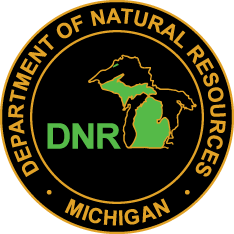LANSING –The United States Department of Agriculture (USDA) declared April 2021 as “Invasive Plant Pest and Disease Awareness Month”– a campaign aimed at raising public awareness about damaging invasive pests threatening our nation’s crops, forests, and natural resources.
According to the USDA, damage caused by invasive tree and plant pests, coupled with the cost of control and eradication efforts, can reach $40 billion annually. These destructive pests impact agriculture, forest products and even residential landscapes.
“Most pests don’t make it very far on their own. Some non-native, exotic pests made it to the United States on goods and materials from other countries, or even on the ships, planes and trains that transport them. Once here, plant pests can be unintentionally moved to new areas by hitching rides on outdoor gear, vehicles, and untreated firewood,” said Rob Miller, MDARD’s Invasive Species Specialist. “They can also hide in or on fresh produce, soil, seeds and plants. Whether you are shopping, traveling or just spending time outdoors, you can do a lot to prevent the movement of exotic pests.”
These simple steps can help limit the spread of invasive species:
- Learn to spot invasive pests posing a threat to plants and agriculture in your area. Report signs of invasive plant pests and diseases to MDARD through the Michigan Invasive Species website or at 800-292-3939.
- Don’t move untreated firewood. Buy heat-treated firewood or buy wood where you burn it to avoid unintentionally spreading species that hide inside untreated firewood.
- When returning from international travel, declare food, plants and other agricultural items to U.S. Customs and Border Protection to ensure these items are pest-free.
- Before buying seeds or plants online from out-of-state vendors, contact MDARD at 800-292-3939 to ask if they need to be inspected or meet other conditions to bring them into Michigan legally and without pests.
- To combat the spread of invasive pests, both the federal government and individual states use quarantines to restrict the movement of materials that might carry plant pests or diseases. Michigan’s quarantine lists, which impact intrastate and interstate movement, is available on its website at MDARD’s plant pest quarantine website. Travelers can learn about pest and disease quarantines in states by checking the USDA-APHIS Pest Tracker at APHIS.USDA.gov.
Visit the Michigan Invasive Species website to find photos and information about invasive plant pests in Michigan and contact information to report pests in your community.
Michigan’s Invasive Species Program is cooperatively implemented by the Department of Environment, Great Lakes, and Energy, the Department of Natural Resources, and the Department of Agriculture and Rural Development.












